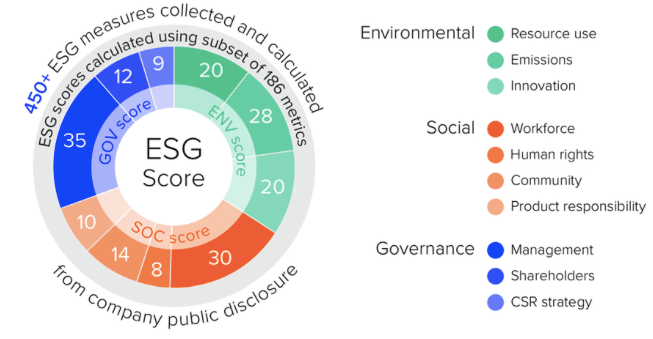Part 1 of the two-part series outlined how Bengaluru is leading in ESG practices and India’s commitment to its compliance. Part 2 looks at the current situation of ESG implementation, its adoption in education and governance, and future outlook.
Current situation
Although still in its early stages, the adoption of environmental initiatives and social programmes by companies like Tata Consultancy Services (TCS) and Asian Paints is gaining traction.
- Social initiatives: Organisations like the Environment Support Group (ESG) work on social justice and environmental issues, advocating for sustainable practices and community well-being.
- ESG in governance and education: The Indian Institute of Management, Bangalore (IIMB) conducts programmes on ESG, reflecting a growing awareness within businesses. This highlights the importance of responsible governance practices.
- Business schools like MBA ESG India offer specific ESG-focused programmes, catering to the increasing demand for ESG professionals.
- Overall growth: Bengaluru’s commitment to ESG is evident through the momentum created by the presence of organisations, educational institutions, and industry focus areas.
Read more: You too can build a sustainable home, just do as this former submariner did
Future outlook
Bengaluru is well positioned to play a leading role in India’s transition towards more sustainable and socially responsible business practices.
India’s Net zero effort is expected to make great progress by 2024 with focus on market forces, regulatory requirements, and technical breakthroughs. With more carbon credits available and increased participation anticipated, the voluntary carbon market, which began to pick up steam in 2023, is set to develop. Stricter rules will set forth precise objectives and guidelines for carbon pricing and decarbonisation. Standardised ESG reporting will improve accountability and transparency in the meantime. Furthermore, it is anticipated that technology developments in carbon capture and sustainable energy may quicken India’s decarbonisation efforts.
This year will be crucial for inclusive practices and social effect as businesses go from awareness to concrete action, emphasising the integration of social impact considerations into everyday operations and key company strategies.
Strategic frameworks known as ESG commitments are used to identify, evaluate, and address a company’s goals and activities, which can include everything from its workplace culture to its carbon footprint and sustainability commitments.
The Bloomberg survey and Thomas Reuters research, which focused on the adoption of sustainable sourcing techniques and renewable energy in the Indian healthcare sector, revealed that 18% of the energy used by healthcare providers was derived from renewable sources, indicating a progressive movement towards the use of renewable energy.
The research also said that 61% of the inputs used by these businesses are supplied responsibly.
The research and development (R&D) and capital expenditure of the examined corporations have shown an increase in funding for environmental and social projects.

The importance of gender diversity is growing for Indian businesses as they strive to improve their ESG ratings. Due to the increased focus on sustainability and social responsibility, businesses are giving inclusive practices top priority in order to spur expansion and develop society as referred in Figure 1.
Initiatives that support gender diversity are becoming more popular in various areas in this context. Organisations are coordinating their efforts with wider societal expectations and investor demands by reconsidering recruitment techniques and guaranteeing pay parity.
Initiatives like establishing diversity goals, developing mentorship programmes for women in leadership positions, and teaching recruitment teams to eliminate unconscious bias, according to Taruna Saxena, a partner at audit and consulting firm Grant Thornton Bharat, enable businesses to raise their ESG scores.
Read more: Bengaluru: Why residential rooftop solar fails to take off
It is important to note that there are also smaller scale waste-to-energy projects in Bengaluru, though they may not be incineration plants like the one in Bidadi. An example is a project near I.D.H Hospital, which is a small-scale containerised unit designed to process organic waste and produce biogas. Impact of Waste-to-Energy Plants in Bengaluru on ESG are to reduce landfill waste. Landfills create methane, a potent greenhouse gas, and can contaminate groundwater. Waste-to-Energy reduces the amount of waste going to landfills.
Energy Generation: The Bengaluru plant generates renewable energy from waste, displacing energy from fossil fuels.
Cautionary note regarding waste-to-energy plants:
There have been issues with air emissions. Waste-to-Energy plants, despite filtration systems, can emit pollutants like nitrogen oxides and sulphur oxides.
Ash Disposal: The incineration process creates ash, which needs proper disposal to avoid environmental contamination.